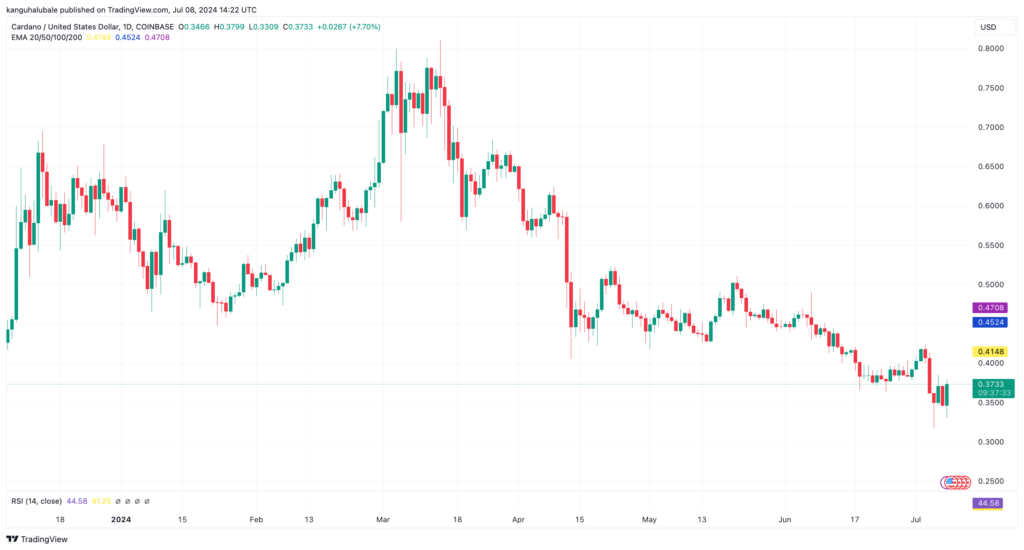- Cardano (ADA) falls 7.4%, mirroring weakness across altcoin markets, reaching near all-time lows against Bitcoin.
- Reduced network activity, including active addresses and new wallets, negatively impacts ADA demand and price.
- Declining total value locked in Cardano’s DeFi protocols underscores diminishing user engagement and token utility.
Cardano (ADA) has seen a steep decline, dropping 7.4% in the past 72 hours to reach $0.338 as of October 25, reversing recent gains. ADA’s recent drop aligns with a broader bearish trend affecting major altcoins like Ether and Avalanche, highlighting shifting sentiment across the market.

Source: TradingView
ADA Price Nears All-Time Lows Against Bitcoin
ADA has lagged behind Bitcoin throughout 2024, with Bitcoin up by approximately 52% year-to-date while ADA has lost 43% in its USD pair. This disparity has led to near-record lows in the ADA/BTC ratio, weakening investor confidence in the token. Since Cardano’s peak in 2021, ADA’s performance relative to BTC has fallen significantly, with the ADA/BTC ratio dropping over 91% from its all-time high.
Diminishing network activity appears to underlie this weak performance. Data from IntoTheBlock reveals a steep decline in active and new addresses on the Cardano network, with active addresses dropping from 71,270 in March to just 25,680, while new addresses decreased by over 75% in the same period.
DeFi Engagement on Cardano Contracts Further
The declining network engagement has also impacted Cardano’s total value locked (TVL) in DeFi applications. Key projects within Cardano’s DeFi ecosystem, such as Indigo and Minswap, have seen double-digit percentage declines in TVL, underscoring the reduced demand for ADA within the ecosystem.
The persistent drop in both network activity and DeFi TVL signals waning demand for ADA, as users engage less with Cardano-based protocols. Analysts note a bearish divergence between ADA’s price and its relative strength index (RSI), a potential indicator of ongoing downward pressure on the token.














